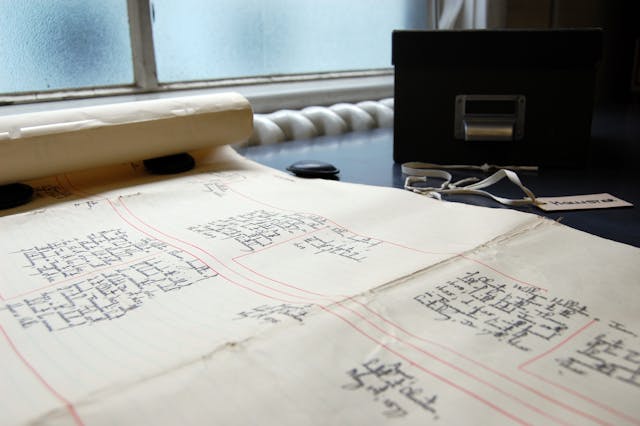
Fact or Fiction? How to Analyse Your Research
You spent a long day researching a family at an archive, library, or online: now what?
How do you sort through all those dates and events in a way that makes sense?
We will discuss some tools you can use as a genealogist that will help you sort and analyse your research, which will make report writing and publication a little easier.
Keep a Research Log and Refer Back Often
Research logs are an important part of the research process.
These reports record detailed information about each source used and where to find them.
These are meant to be written during the research process, so the information is not forgotten. Research logs help decrease duplication of searches and save you time in the long run.
There are many different types of data that can be recorded in a research log.
You can put as much or as little in the log as well; it is your choice.
The most basic information that can be recorded in a research log is the date, where you searched, and what the results of the search were.
Here is an example of a more detailed research log:

• Date: The date the search was done.
• Source Notes: What repository/website of the search. (e.g. Ancestry.co.uk, Dorset, England, Baptisms, Marriages and Burials, 1538-1812)
• Search Terms: The search conducted in the repository (ex. surname, date, place). If you performed multiple searches, make sure to record them all.
• Results: The information found, including a source note. Any information that is new. If you did not find any new information, make a note (a nil search).
• Analysis/To Do: What must be searched next from the information found.
• Doc #: If you found a document that will be put into your personal files, number the document so it can be found at a later time.
• Hours: A count of how much research was done at a specific time.
Take Notes While You Research
Sometimes it is difficult to stop and look at a source as you research. When it is all said and done, you will not remember why a record was so important. By taking abstracts or transcriptions of the important information in a document as you research, you will save yourself time later when writing a report or analysing your research. You can save this information with your document, in your research log, or in your genealogical program.
Make a Timeline
Creating a timeline for an individual or family may help you solve genealogical problems. By putting family events side by side, you will be able to spot continuity issues (e.g. if a child was born after the death of the mother, couples marrying very young, etc.). This will also help in surname studies, when trying to figure out if candidates with the same name can fit into your family tree. Visualizing the family’s lives this way will help save you the time of fixing errors later in the research process.
Think About It
It is important to not only look at records, but to take time to think about what you learned from that record and how it relates to other information you had previously. Does everything match what you knew before? Is there a fact that is different than what was previously known? Is there any new information that can be proved? These questions are essential to a genealogist to make accurate claims about their research.
Print out a Pedigree and Family Group Sheet
When doing research, it is likely that a genealogical program is used to enter information about individuals. Usually these programs have a way of printing out pedigrees and family group sheets. A pedigree lists generations with basic information to see how lines connect. Family Group Sheets show every single individual, divided by generations. These documents have source notes attached to events in their lifetime. Having a hard copy of these types of reports allows you to take notes and highlight any errors that can be changed in the digital format.
Write a Research Report
Research reports are a great way to elaborate on your thoughts that you have had about your family. It will help you work out any issues the family tree contains, as well as help you elaborate on your reasoning. Research report writing can take up a lot of time; it is likely that you spend half of your time researching, and half of your time writing (See Hints and Tips: Writing a Genealogical Report).
Make a List of What Needs to be Done
Usually part of a research log, it is a good practice to write out a list of sources that you could consult the next time you research. This allows you a great way to pick up where you last left off, without losing too much of your previous thinking.
How to Share Your Research
After analysing and writing good reports, it is important to share what you have and join the genealogical conversation. While thinking about your research is essential, sometimes speaking to others about the things you have been researching will help you sort out problems or conflicts.
There are many ways to involve yourself in the sharing of genealogical information. You can publish or self-publish your findings in printed form, including publishing in genealogical magazines or journals, or publishing family histories into book form (e-books as well). You can also publish your works online on a personal family history blog or on a website’s family tree program (ex. Ancestry and FamilySearch). Publishing online makes the works more accessible to people all over the world in a way that a printed source cannot. If you do not want to publish your work, you can always print copies for immediate family that can be shared at your leisure.
__________________________________________________________________
Written by Abbie Black 2013
© Society of Genealogists 2017
Join us
As a member, you can make the most of our resources, access our experts, and find a welcoming community of people interested in family history and genealogy.
We all have roots. Let’s find them together.
